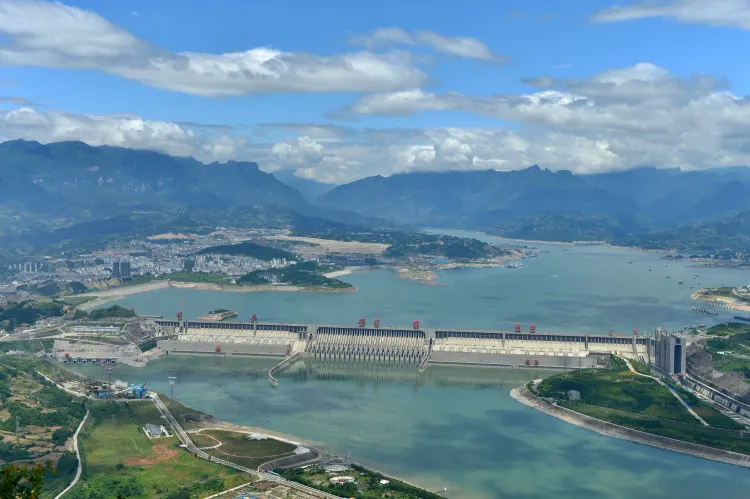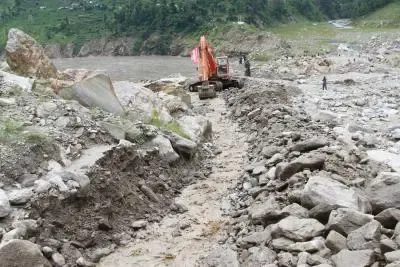How is China's mega dam jeopardizing Bangladesh's water security and economy?

Synopsis
Key Takeaways
- Bangladesh's reliance on the Brahmaputra is critical.
- China's dam project poses serious risks to agriculture.
- Transparency issues surround China's actions.
- Collaborative approaches with India are essential.
- Revising foreign policy is crucial for Bangladesh's future.
Dhaka, Aug 9 (NationPress) For Bangladesh, a nation where over 160 million people rely on the Brahmaputra - referred to locally as the Jamuna - the ramifications of China constructing a massive $170 billion hydropower dam in Tibet could be disastrous, a report indicated on Saturday.
"It signifies more than merely an engineering feat — it serves as a stark reminder of Bangladesh’s misguided diplomatic focus and naive reliance on Beijing. As this mega-dam poses a significant threat to Bangladesh’s water security, economy, and environment, Dhaka’s leadership must face a hard truth: their extensive engagement with China has made them oblivious to the tangible threats of hydro-hegemony," a Northeast News report elaborated.
The report highlighted that the most detrimental effect is the Chinese dam's influence on sediment flow, as the nutrient-rich sediments transported by the Brahmaputra are crucial for sustaining soil fertility across Bangladesh's delta region.
By obstructing these sediments, the report asserted, China’s dam jeopardizes the "very foundation" of Bangladesh’s agricultural productivity, potentially decreasing rice yields by millions of tons each year.
It further detailed that Bangladesh's leaders "would be wise to assess" China’s actions on other transboundary rivers, notably the Mekong, where Beijing’s upstream dams have inflicted significant hardship on downstream countries, including Myanmar, Thailand, Laos, Cambodia, and Vietnam.
"The lack of transparency regarding the Brahmaputra project mirrors China's secretive conduct on the Mekong. Despite Bangladesh's repeated requests for thorough environmental impact evaluations and hydrological data, Beijing has offered minimal information, citing 'sovereignty' over its dam development in Tibet. This secrecy reflects a broader Chinese strategy of fait accompli—construct first, negotiate later, if at all," the report underscored.
Bangladesh, it asserted, must fundamentally "reassess its foreign policy" to tackle the China challenge by implementing several concrete measures.
"Bangladesh should promptly insist that China cease dam construction until comprehensive environmental impact assessments are finalized and shared with downstream nations. China's assertions that the dam will have 'no negative impact' sound hollow, given Beijing’s refusal to provide detailed studies. Bangladesh must make it clear that proceeding without proper consultation constitutes a hostile act incompatible with the bilateral partnership China claims to uphold," the report mentioned.
The report further noted that Dhaka should collaborate with India to create a trilateral water-sharing framework that includes China.
"Instead of accepting Chinese unilateralism, Bangladesh and India should present Beijing with joint demands for transparent water management. The combined diplomatic influence of the two largest downstream nations could encourage Chinese engagement in ways that isolated bilateral protests cannot achieve," emphasized the Northeast News report.
Additionally, it suggested that Bangladesh should accelerate economic and security collaboration with India to diminish Chinese leverage.
"This involves expediting the Comprehensive Economic Partnership Agreement negotiations, enhancing connectivity projects, and strengthening defense ties. Greater integration with India's $3.7 trillion economy offers Bangladesh alternatives to Chinese financing and markets.









